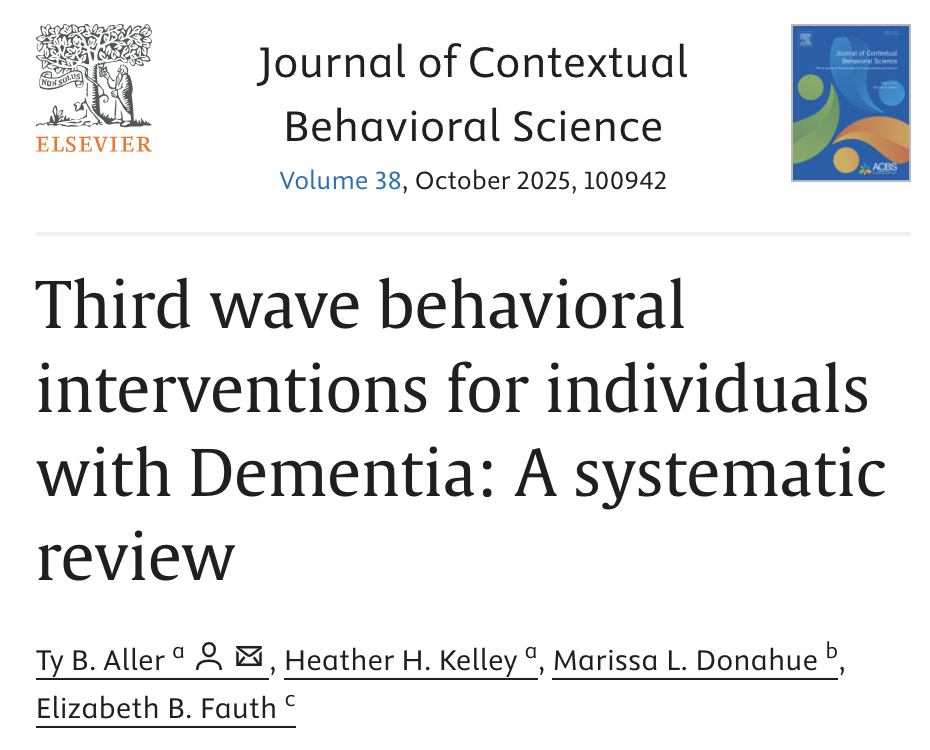Journal of Contextual Behavioral Science (JCBS)
Volume 38, October 2025
Authors
Ty B. Aller, Heather H. Kelley, Marissa L. Donahue, & Elizabeth B. Fauth
Key Findings
- Third-wave interventions demonstrate indicators of feasibility and acceptability.
- Common adaptations include language accessibility and memory aids.
- The preliminary efficacy of third-wave interventions is inconclusive for this group.
- Future research needs to emphasize improving designs.
Abstract
Introduction
Worldwide, over 10 million individuals are diagnosed with a dementia-related disease each year. Individuals often report increased depression and anxiety after receiving a dementia diagnosis. Third wave cognitive behavioral interventions are beneficial for improving mental health symptoms in persons without dementia. There is not, however, clear conclusions on if these interventions are feasible, acceptable, and effective for individuals with dementia. Objectives The aim of this preregistered study (https://osf.io/u2njw) was to review the feasibility, acceptability, and efficacy of third wave cognitive behavioral interventions for self-reported psychological well-being of individuals with a dementia diagnosis.
Methods
A systematic review was carried out on studies examining third-wave cognitive behavioral interventions for individuals with a dementia diagnosis published between 2012 and 2023 using APA PsycINFO, Academic Search Ultimate, Health Source: Nursing/Academic Edition, MEDLINE, Psychology and Behavioral Sciences Collection, Science Reference Center.
Results
10 studies met inclusion criteria, of which 7 were unique studies and 3 were supplemental studies using a similar dataset. Most studies took place in the United Kingdom and included varying designs (e.g., single-arm, case study, randomized control trial). A total of 229 participants were included in this review, most of which were diagnosed with either Alzheimer's disease, vascular dementia, mixed dementia, or dementia unspecified. Mindfulness-based interventions were most used (k = 3) and interventions were primarily delivered via group sessions. Adaptations included shortening session intensity (e.g., fewer sessions, fewer activities) and making materials more accessible (e.g., larger fonts, fewer words). The most common outcome assessed was quality of life. Results of studies were mixed; some reported improvements while others reported null or negative outcomes.
Conclusion
Third wave behavioral interventions seem to be preliminarily feasible and acceptable for individuals with dementia. The efficacy of these interventions for individuals with a dementia diagnosis is still unclear. Adaptations included basic accessibility considerations. Future research should emphasize the need for more rigorous study design, increased sample sizes, and consistency in intervention adaptations.
